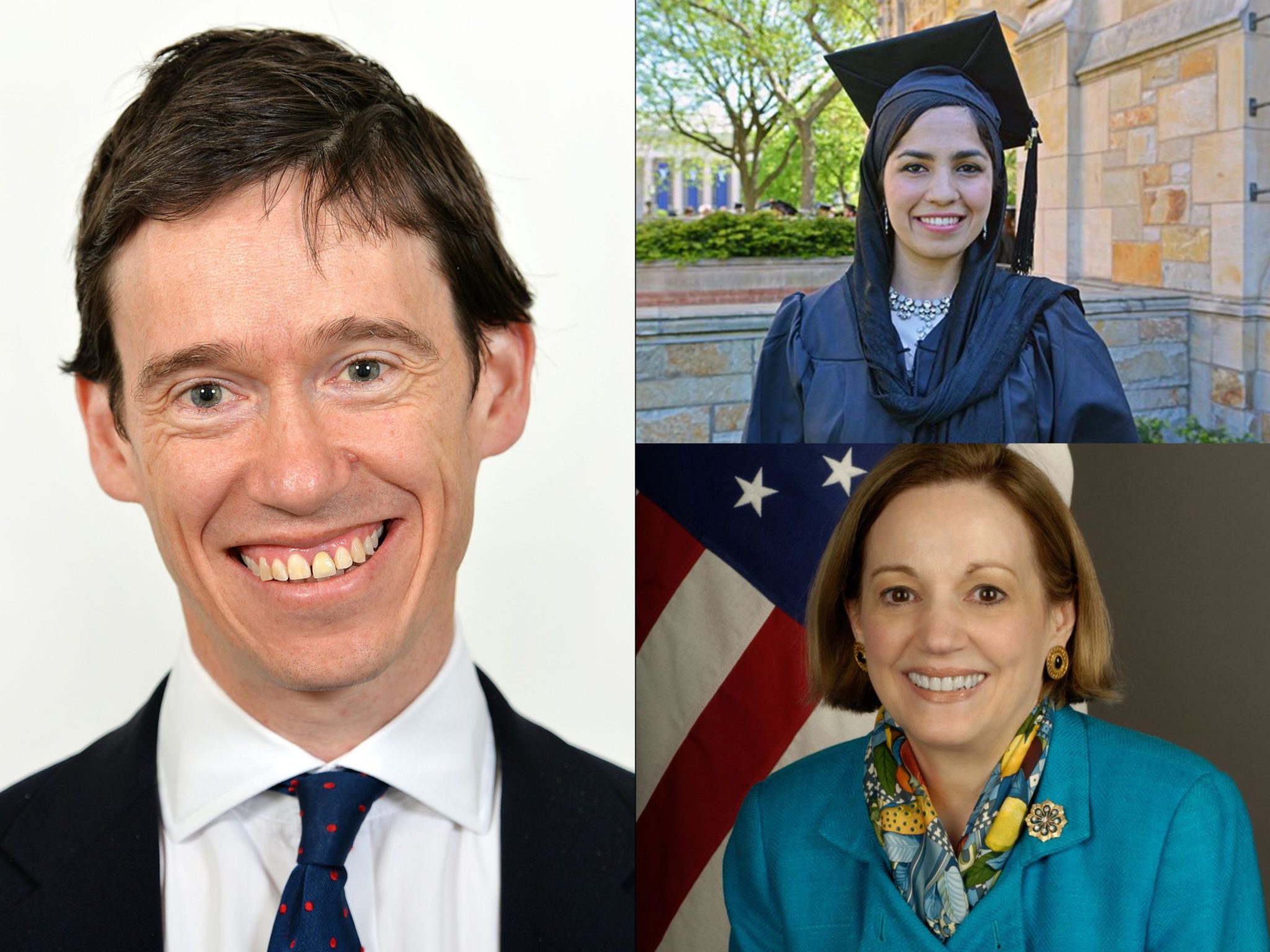Jackson Institute Afghanistan webinar series hosts final installment
The event, which featured the first Afghan woman to graduate from Yale College and Yale Law School, emphasized the need for humanitarian aid to Afghanistan.

Creative Commons and Lukas Flippo, Photo Editor
Wahzma Sadat ’14, the first Afghan woman to graduate from Yale College and Yale Law School, led a virtual discussion forum on Tuesday in which she talked about the current status of Afghanistan — as the Taliban quickly overtook Afghanistan following United States forces’ withdrawal from the nation that marked the end of a 20-year war.
The Sept. 21 event, which was open to the general public, was the International Security Studies program’s second and final virtual discussion forum on the Afghanistan conflict. The forum, titled “Afghanistan: Where Do We Go From Here?” featured Jackson Senior Fellow Anne Patterson, Jackson Senior Fellow Rory Stewart and Sadat. All three speakers emphasized the need for the international community to start focusing on how United States policies affect people’s basic needs.
“The events of the past weeks have been really sad and horrifying,” Sadat told the audience. Quoting her uncle who is currently living in Kabul, she added that “we are one step away from eating the leaves.”
Sadat’s family lived in Kabul in the 1990s, when it was under Taliban rule. Recently, her family had to evacuate her brother from the airport in Kabul before the border closure. Sadat emphasized that her family’s story is the story of countless families facing the consequences of Taliban rule.
Stewart, former secretary of state for international development, had warned against the withdrawal of aid from Afghanistan. “Approximately 60 percent of the Afghan government budget comes directly from foreign transfers,” he said.
Even if governments decide to continue their foreign transfers, there is no guarantee that it will penetrate the systems of corruption and reach the people that really need it, Stewart said.
“The first priority is to prevent economic collapse,” Patterson said. According to Patterson, the sanctions that are in place against the Taliban are a “financial death grip” on the country.
Sadat recalled a story from her childhood, during the first Taliban regime, where she said she saw parents selling their children on the streets in the hopes of being able to feed the rest of their family. She warned the audience that the country is headed in a similar direction if the international community does not find a way to get humanitarian aid on the ground.
When asked if she would categorize the Taliban differently from terrorist organizations, Sadat said that she would not. The recent events do not “mean that they have stopped being terrorists, it just means that now they are terrorists who have accomplished what they wanted to accomplish,” Sadat said. She said that the Taliban’s rule through fear and intimidation were examples of their harsh rule.
A question and answer period followed the three speakers.
One audience member, Former Under Secretary General of the United Nations Staffan de Mistura, took the opportunity to emphasize the need for the international community to be engaged in the humanitarian effort to aid Afghanistan.
“We should limit ourselves to humanitarian aid because this is what the people need,” Mistura said. “Engagement and recognition will also ensure that leverage remains in the face of the future state of affairs.”
The first installment of the virtual discussion forum took place on Sept. 16 and was entitled “Afghanistan: A View from the Frontlines” with Clarissa Ward ’02, CNN’s chief international correspondent.







